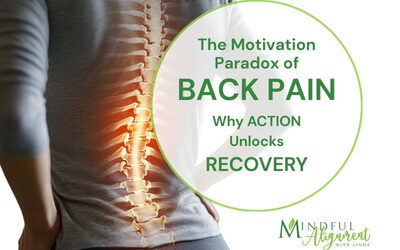Depression Can Affect Anyone
Even Olympic Athletes
Michael Phelps is the most successful and decorated Olympian winning 28 medals for swimming.
In 2019, Simone Biles won five gold medals and became the first USA gymnast and second ever from any nation to achieve that status. She is considered the best gymnast to date.
What do they have in common? They both have shared their struggles with mental health. Being in the spotlight makes it extremely difficult for anyone to share these struggles. It takes immense courage to do this.
In 2018, Phelps shared his struggle with depression
Having experienced some mental health issues, he is supportive of the decision that Biles made to walk away from the competition in Tokyo.
Biles tweeted this: “The outpouring of love & support I’ve received has made me realize I’m more than my accomplishments and gymnastics which I never truly believed before.”
When you work so long and hard to accomplish something, it’s easy to get lost in the pursuit of that goal, ignoring the need to rest and recharge.
What is depression?
Depression is a medical illness that has a negative impact on the way you think and feel.
Symptoms vary from mild to severe and may reduce one’s ability to function at home and work. For example, depression may cause feelings of sadness and a loss of interest in activities you once enjoyed. Other symptoms include difficulty sleeping, loss of energy, and changes in appetite.
How common is depression?
It is estimated that depression affects one in fifteen adults. One in six people will experience depression at some time in their lives. In addition, the pandemic has increased symptoms of anxiety and depression. To date, about 4 out of 10 adults in the U.S. have reported some symptoms.
What you can do to try and combat depression
If you are feeling low or dealing with some depression, here are some self-help tips:
- Get regular exercise, daily if possible
- Get more sleep
- Meditate to reduce stress
- Reduce sugar and alcohol intake
- Eat a healthy diet
- Talk with a friend
In addition, assess your work-life balance. Our brains are not designed to work non-stop. When we take time to rest, creativity and productivity improve. As a result, we are happier and less anxious.
And finally, do something you enjoy. Listen to music.
Bottom Line: Just like Michael Phelps and Simone Biles, acknowledge when you need help or need to step away for a break. If your anxiety or depression lingers, make an appointment with a medical professional to get checked out! Don’t wait. Act today!
If you would like guidance or support on your wellness journey or would like to know more about my services, send me a message or call (973) 476-8661.
Are you tired of living with pain?
Are your activities and daily choices determined by your level of pain?
Are you ready to change your life for the better and gain back your physical freedom?
My unique and custom designed approach comes from years of training, education and experience. Together, we will get you back to living pain free and enjoying life.
Sign up for a private session today
It’s never too late to try something new.

Related Articles:
Beyond Calcium: The Power of Yoga for Bone Health
Discover how yoga supports bone health and osteoporosis prevention. Learn science-backed poses that strengthen your skeleton and reduce fracture risk.
The Motivation Paradox: Action is the Catalyst for Healing Back Pain
Discover the Motivation Paradox of Back Pain—why waiting for motivation keeps you stuck and how action is the true catalyst for healing. Learn science-backed strategies to break the pain cycle and reclaim mobility.
Transform Back Pain Anxiety: From Uncertainty to Empowerment
Discover how to navigate pain anxiety with empowerment. Embrace uncertainty and reclaim your healing journey through mindfulness and resilience.
Transforming Your Relationship with Back Pain: A Mindset Revolution
Back pain is more than a physical challenge—it's a profound psychological journey. The real battle isn't just in your muscles and joints, but in your mind. Your thoughts can either be a prison or a pathway to healing. Reframing Your Inner Narrative When chronic pain...




